Elevate your local knowledge
Sign up for the iNFOnews newsletter today!
Sign up for the iNFOnews newsletter today!
Selecting your primary region ensures you get the stories that matter to you first.
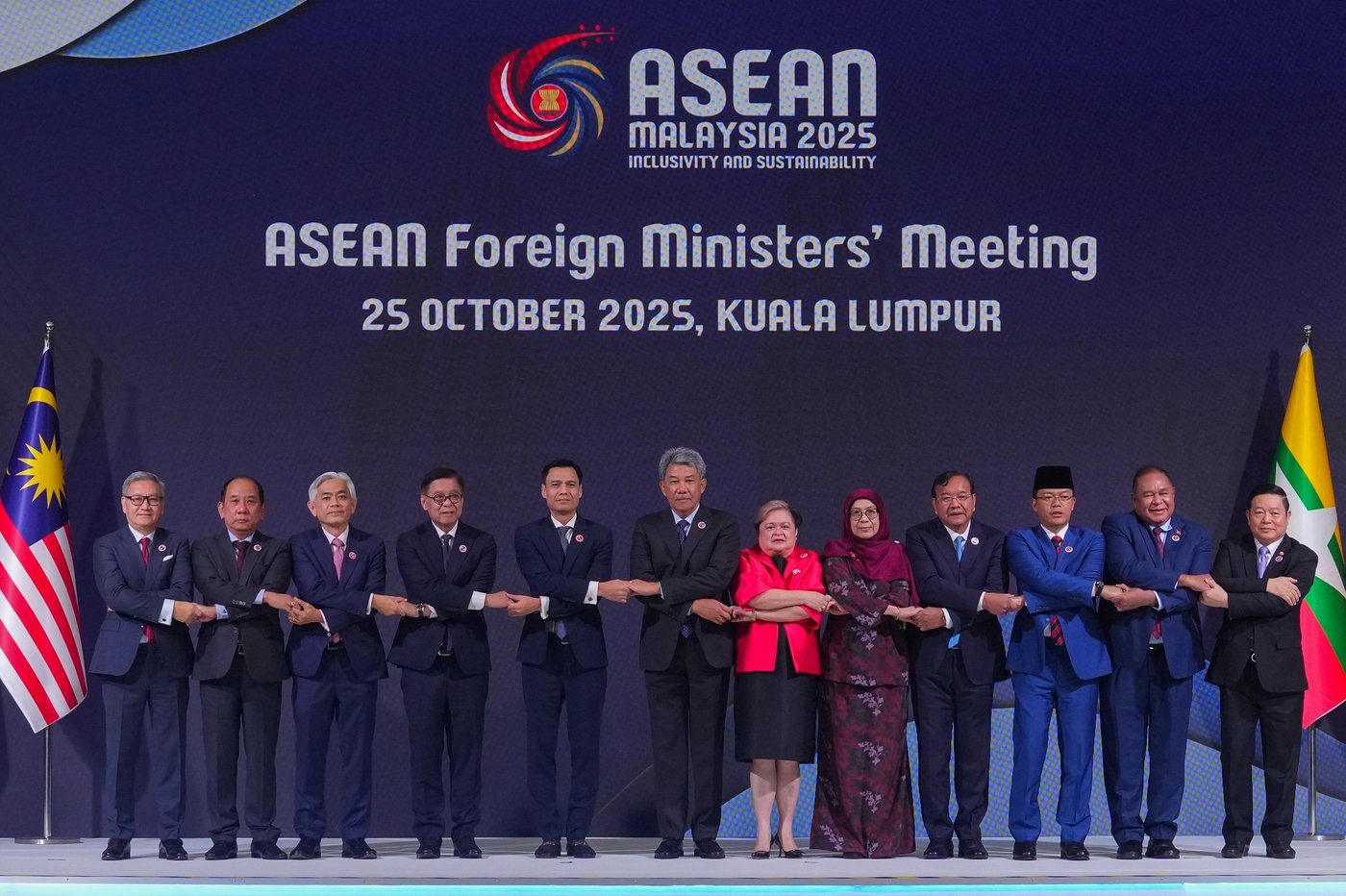
KUALA LUMPUR, Malaysia (AP) — Malaysian foreign minister warned his counterparts from Southeast Asia that the space for neutrality is shrinking in a region increasingly shaped by big power rivalry, as they mark U.S. President Donald Trump’s first trip to Asia since returning to the White House.
The meeting on Saturday serves as a curtain-raiser for the annual Association of Southeast Asian Nations summit, which starts on Sunday in Kuala Lumpur, followed by two days of high-level engagements with key partners including China, Japan, India, Australia, Russia, South Korea and the U.S.
Leaders are expected to focus on regional security, economic resilience, and maritime disputes — with U.S. tariffs and shifting global trade patterns looming large over discussions.
“As the international landscape becomes increasingly dominated by contestation rather than consensus, division rather than dialog, ASEAN finds itself at a crossroads,” Malaysian Foreign Minister Mohamad Hasan told his counterparts.
“Our space for neutrality and centrality is narrowing, particularly in areas such as trade, technology and regional security arrangement,” he said. “We must continue to act as the speakers and not the spoken for.”
A separate summit of the Regional Comprehensive Economic Partnership — the world’s largest trade bloc encompassing ASEAN and five partners: China, Japan, South Korea, Australia, and New Zealand — will convene for the first time since 2020. Its revival comes as regional economies seek to stabilize trade at a time when U.S. tariffs have rattled markets and tested decades of globalization.
Apart from Trump, Chinese Premier Li Qiang and Japan’s newly inaugurated Prime Minister Sanae Takaichi are among more than a dozen leaders attending the ASEAN summit and related meetings.
Brazilian President Luiz Inácio Lula da Silva and South African President Cyril Ramaphosa will also participate as new dialogue partners — part of Malaysian Prime Minister Anwar Ibrahim’s effort to deepen ASEAN’s economic ties with Africa and Latin America.
Trump’s return to Asia
Trump’s trip marks his first ASEAN meeting since 2017 and his first journey to Asia in his second term. The last U.S. president to attend an ASEAN meeting was Joe Biden in 2022.
Officials say Trump is expected to witness new U.S. trade deals, including with Malaysia.
Trump is also expected to preside over the signing of an expanded ceasefire between Thailand and Cambodia, following border clashes between the countries earlier this year. The ceasefire deal was brokered in Kuala Lumpur in July with ASEAN’s support and under Trump’s threat to suspend trade negotiations. His trip will also take him to Japan and South Korea.
“Trump’s presence reflects a rare moment of direct U.S. presidential engagement in the region,” said Joanne Lin, co-coordinator of the ISEAS–Yusof Ishak Institute’s ASEAN Studies Centre in Singapore. It signaled Washington still sees value in ASEAN as part of its Indo-Pacific outreach, she said.
“But more than deepening U.S. involvement, this visit is about visibility. Trump wants to project himself as a global dealmaker at a time when his domestic policies, especially tariffs, have unsettled key partners in the region,” Lin said.
Tight security in Kuala Lumpur
Security has been ramped up across Kuala Lumpur ahead of planned protests against Trump’s visit, particularly over his administration’s stance on the Palestinian issue.
Anwar has said the government would allow peaceful demonstrations but vowed the meetings would proceed smoothly. While Anwar acknowledged that some critics may have called Trump anti-Muslim, he commended Trump for helping broker a ceasefire in Gaza, “which is near impossible under normal terms.”
Malaysia, however, maintains that the truce has not resolved the Palestinian question and intends to raise the issue directly with Trump during the summit, Anwar said.
East Timor joins ASEAN
This year’s summit marks a milestone for ASEAN as it welcomes a new member for the first time in 26 years. It has been a long but rewarding journey for East Timor, also known as Timor Leste, which applied for membership in 2011. The last member to join ASEAN was Cambodia in 1999.
“Welcoming this young democracy strengthens not only our collective resolve, but also our capacity to meet future challenges together,” Mohamad said.
The integration of the region’s youngest and poorest nation — with just 1.4 million people — is being hailed as a symbolic step for regional inclusivity. East Timor was a Portuguese colony for over four centuries before Indonesia’s 1975 invasion.
A brutal 24-year occupation followed, claiming tens of thousands of lives through conflict, famine and disease. A U.N.-supervised referendum in 1999 paved the way for independence, which was formally restored in 2002.
ASEAN membership gives East Timor access to the bloc’s free trade deals, investment opportunities and a broader regional market — vital for diversifying an economy long reliant on oil and gas.
Regional tensions and the Myanmar crisis
Leaders are also expected to discuss flashpoints including the South China Sea dispute, Myanmar’s civil war, and the spread of cross-border scam networks.
During the meetings, ASEAN will sign an upgraded free trade pact with China and continue negotiations on a long-delayed code of conduct for the contested waterway.
Meanwhile, the civil war triggered by Myanmar’s 2021 military takeover continues to test ASEAN’s unity, with military government leaders still barred from summits after failing to comply with the bloc’s 2021 Five-Point Consensus on peace and dialogue. Myanmar’s plans for elections in December — dismissed by critics as neither free nor fair — have put the bloc in a tight spot and will be discussed at the summit.
Thai Foreign Ministry spokesperson Nikorndej Balankura told reporters his country would be prepared to send observers, but stressed that it would not mean endorsing the polls.
“We think that we have to be there, we have to be involved, post election as well,” he said. “The democratic process of Myanmar does not end at the elections.”
___
Associated Press writer David Rising contributed to this report.
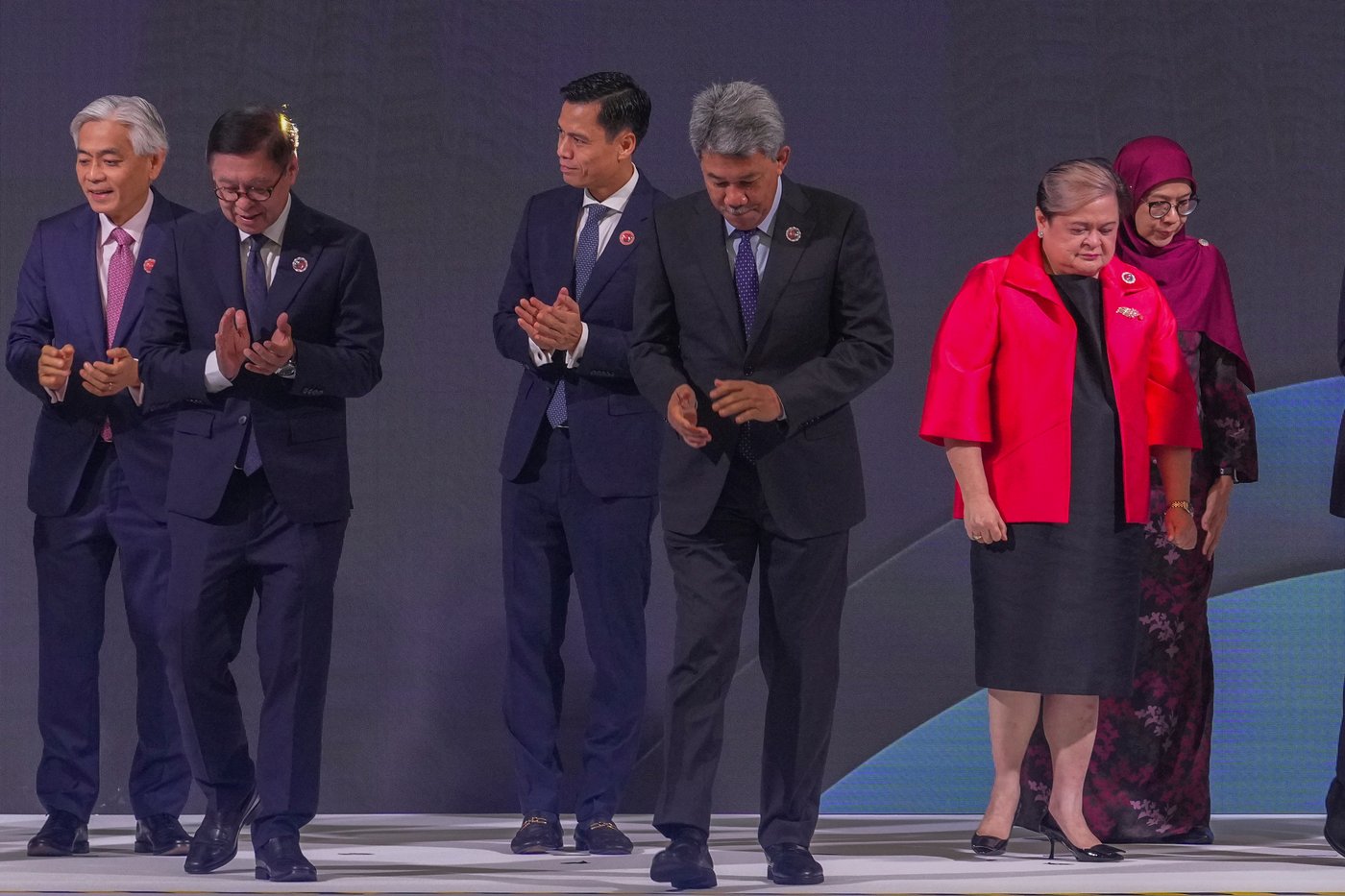
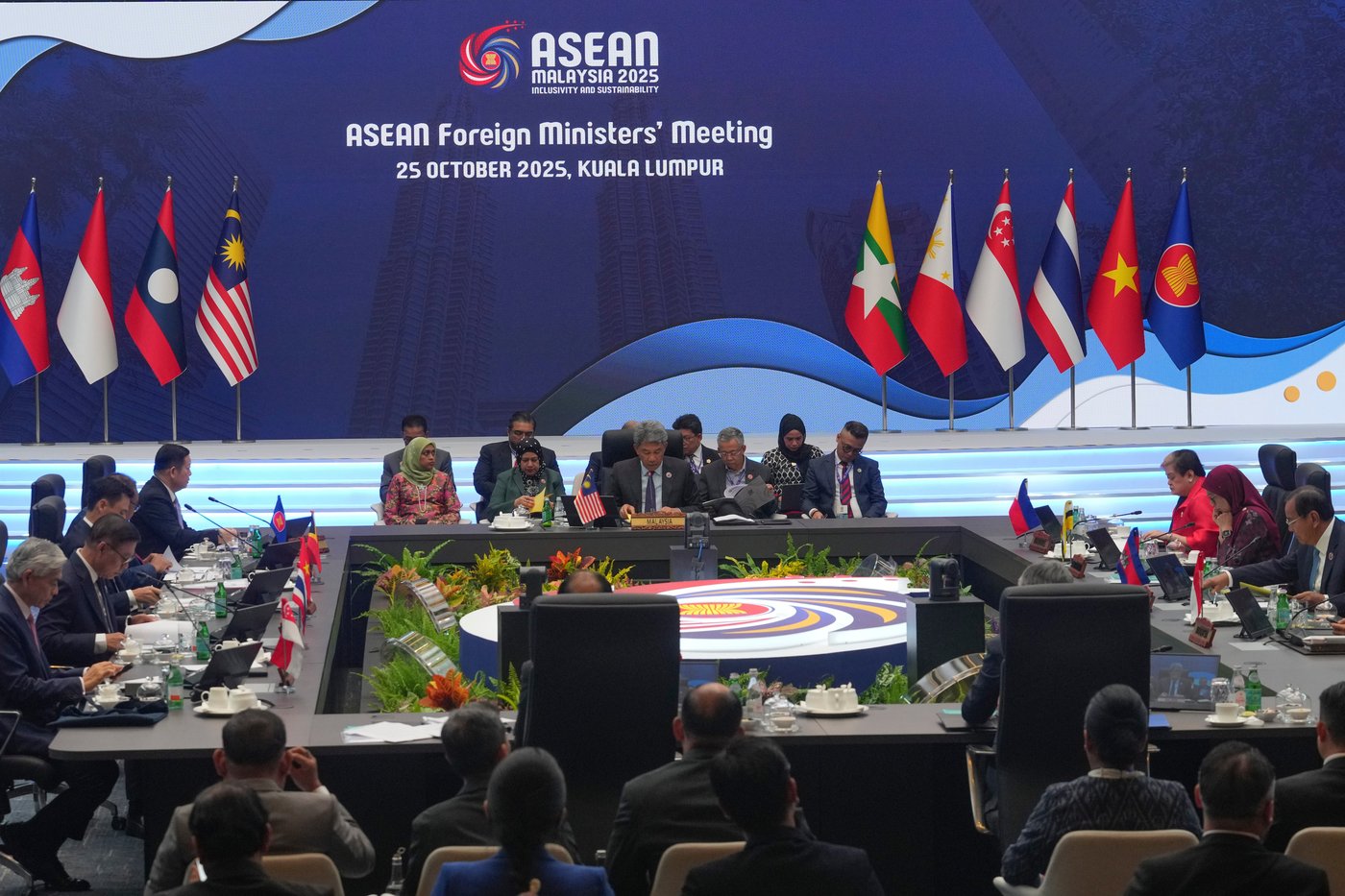
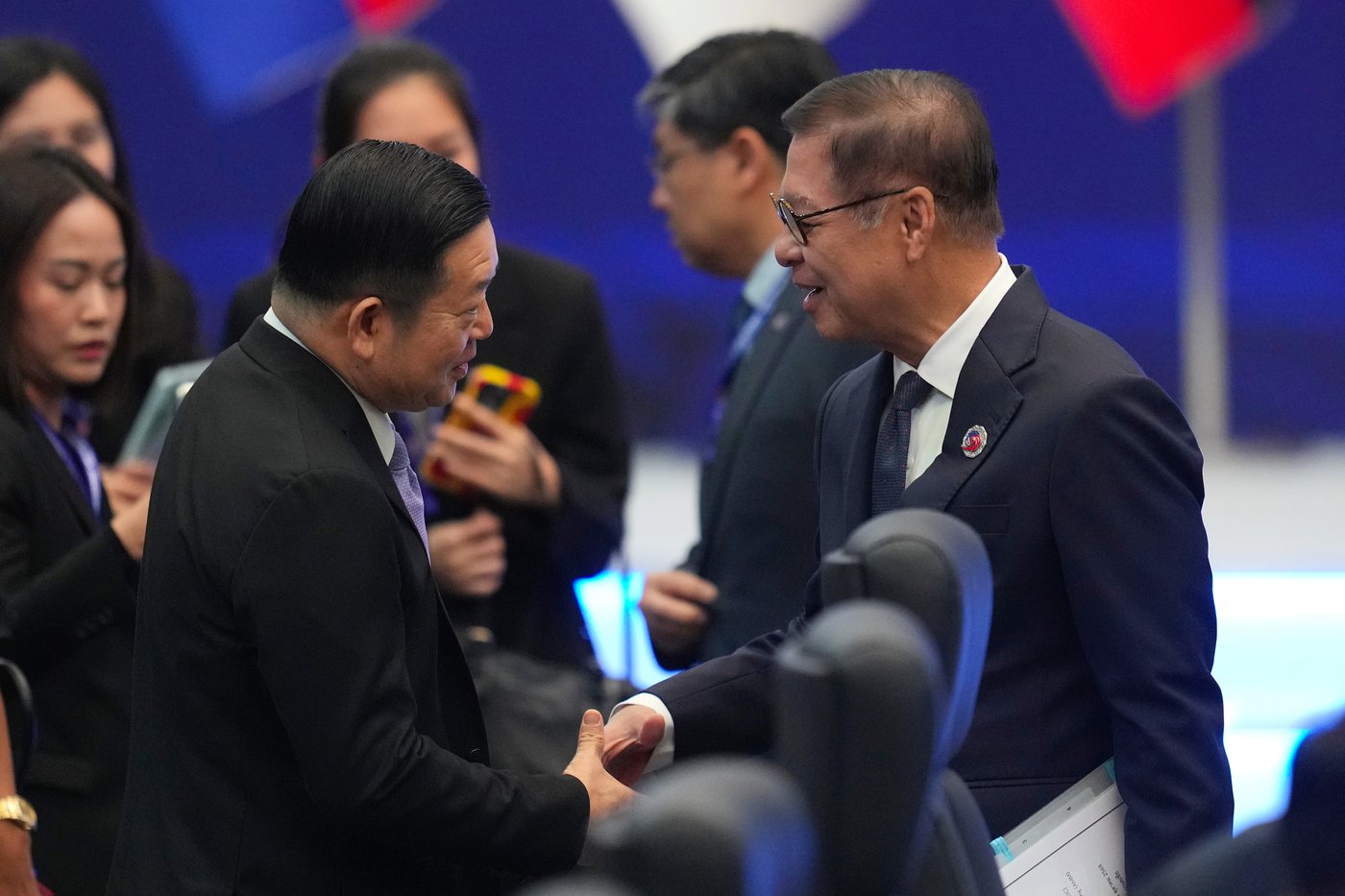
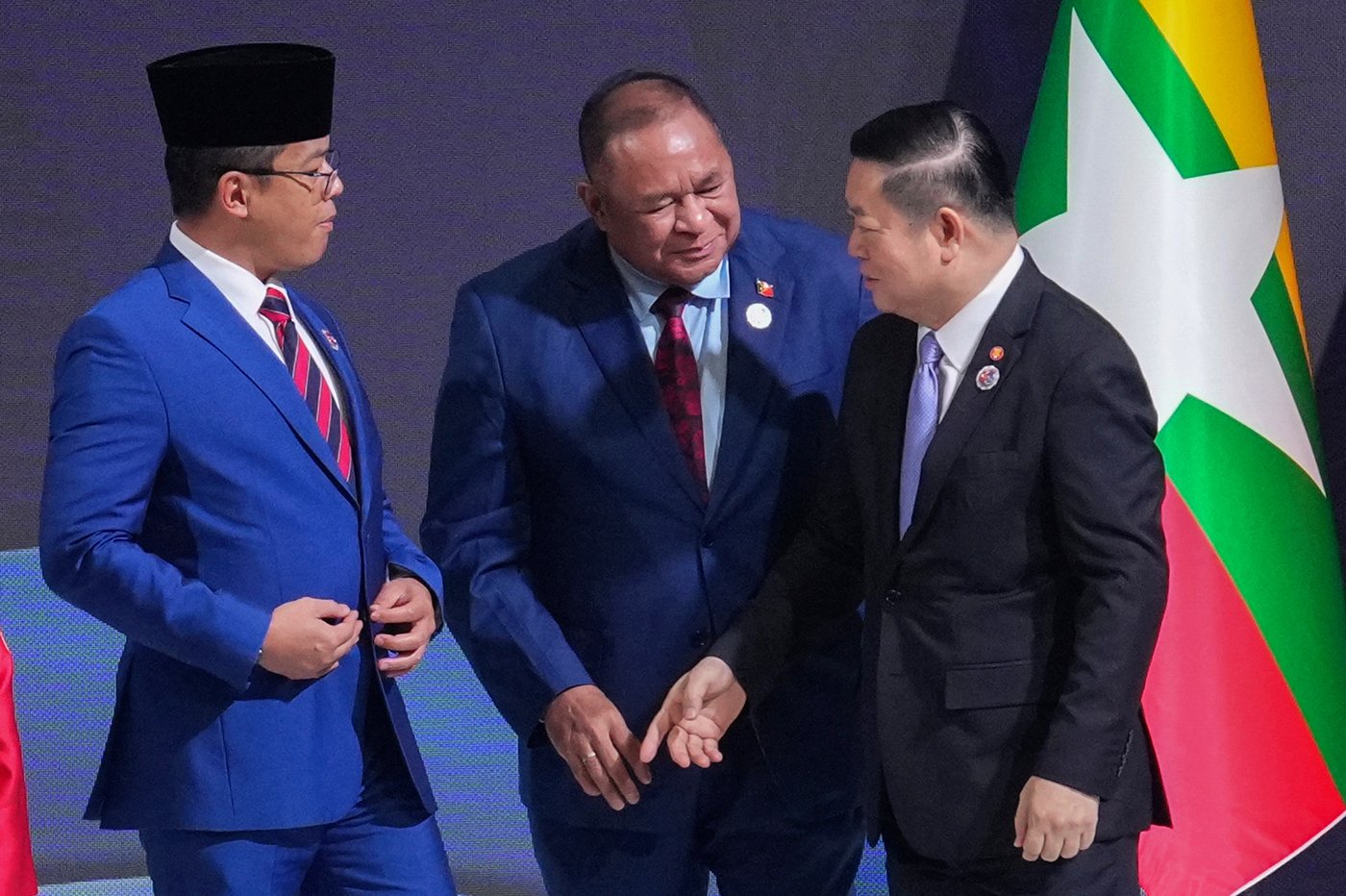
This site is protected by reCAPTCHA and the Google Privacy Policy and Terms of Service apply.
Want to share your thoughts, add context, or connect with others in your community?
You must be logged in to post a comment.